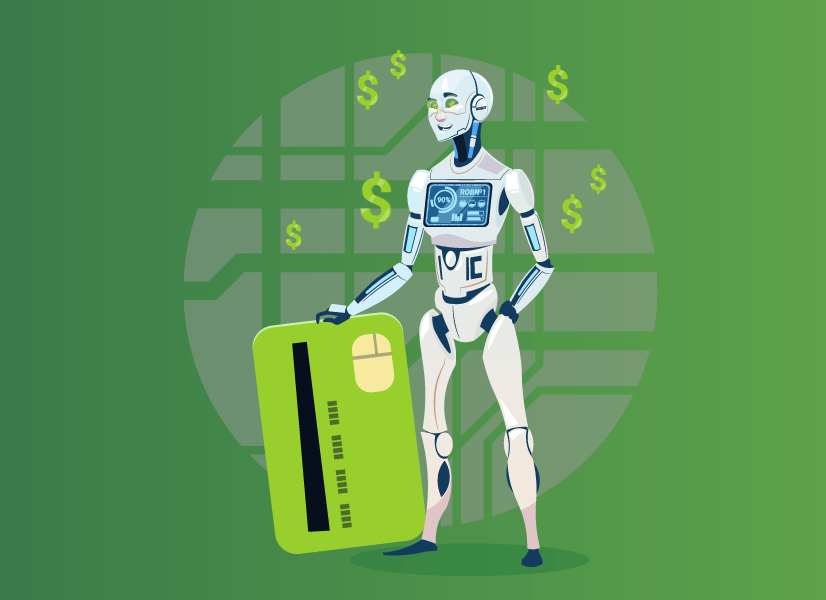AI is gradually becoming an essential part of companies budgets due to its growing importance in business transformation, and payments are no exception. It is not about replacing human interaction, but rather improving and automating processes to increase efficiency and accuracy.
Fraud and chargeback management, the complex regulatory landscape, and disputes and dispute resolution are among the top 10 payment industry pain points, but AI can help. NLP, machine learning, predictive analytics, and neural networks can all assist improve and protect the payment infrastructure.
Natural language processing (NLP)
Another aspect of artificial intelligence is natural language processing, which allows machines to interpret and process human language. In the payments industry, NLP can fuel chatbots to manage consumer inquiries about payments, refunds, or transaction history, thereby increasing customer service without requiring human participation.
Machine Learning Algorithms
Machine learning, a subset of artificial intelligence, refers to algorithms that can learn from and analyze predicted data. These algorithms are commonly used in payments to detect fraud, forecast customer purchasing behavior, and optimize transaction procedures.
Predictive Analytics
Predictive analytics uses statistical algorithms and machine-learning techniques to estimate the likelihood of future outcomes based on past data. In payments, it can aid in anticipating transaction volumes, which is critical for resource management and ensuring smooth operations, particularly during busy selling seasons.
Neural networks
Neural networks can detect patterns and abnormalities in large datasets because they are inspired by the way the human brain operates. They aid in fraud detection by recognizing outlier transactions that go out from established patterns.
The integration of AI with payments has the potential to transform transaction processing and monitoring. The use of artificial intelligence in payments has the potential to improve security, efficiency, and customer satisfaction. Let’s look at some of the possibilities.
Fraud detection and chargeback management
Dealing with fraudulent transactions and chargebacks may be time-consuming and expensive for retailers, resulting in revenue loss and reputational harm.
One of the most important applications of artificial intelligence in payments is fraud detection. Machine learning algorithms can scan massive volumes of transaction data in real time, detecting unusual activity and flagging possibly fraudulent transactions. They accomplish this by analyzing past transaction data to discover trends linked with fraud.
Regulatory Landscape: Reporting and Documentation
- Automated Reporting: Artificial intelligence systems can generate and submit regulatory reports automatically. This lowers the possibility of human error and ensures fast and accurate reporting to regulatory authorities.
- Document Analysis: AI technologies such as natural language processing (NLP) can analyze and comprehend complex regulatory papers, assisting organizations in staying up to date on regulatory changes and maintaining compliance with growing requirements.
Customer Disputes and Resolution
Payment companies that integrate AI technologies into their operations can streamline dispute resolution processes, increase efficiency, lower costs, and ultimately provide a better customer experience. AI can help payment firms handle consumer issues and resolve them in a variety of ways:
- Automated Analysis: AI systems can examine massive amounts of transaction data to detect patterns and abnormalities that could signal a dispute. By continuously monitoring transactions, AI may spot discrepancies or irregularities in real time and flag them for further investigation.
- Natural Language Processing (NLP): NLP algorithms can analyze written communication between customers and customer service agents to determine the nature of conflicts. AI can extract crucial information from emails, chat transcripts, and support tickets to categorize and rank disagreements depending on their severity and complexity.
- Predictive Analytics: Using AI, predictive analytics can forecast the likelihood of conflicts based on previous data and customer behavior trends. Payment firms can take proactive steps to avoid or lessen possible issues if they are identified early on.
- Decision Support Systems: AI can help human agents make educated judgments during the dispute resolution process by giving them with pertinent information, recommendations, and proposed courses of action based on previous data and preset rules.
AI in payments will help PSPs continuously improve their fraud detection processes, assist merchants in making better real-time decisions, and improve the consumer experience. The advancement of AI in payment goes beyond technology.
